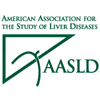 Silymarin, an extract of milk thistle (Carduus marianus), had no benefit on levels of the liver enzyme alanine aminotransferase (ALT) in people living with hepatitis C, according to a new study reported Tuesday, November 8, by researchers at the 62nd annual meeting of the American Association for the Study of Liver Diseases in San Francisco.
Silymarin, an extract of milk thistle (Carduus marianus), had no benefit on levels of the liver enzyme alanine aminotransferase (ALT) in people living with hepatitis C, according to a new study reported Tuesday, November 8, by researchers at the 62nd annual meeting of the American Association for the Study of Liver Diseases in San Francisco.
Originally a native of Southern Europe and Asia, the milk thistle plant is now found throughout the world. The medicinal parts of the plant are the ripe seeds—slymarin is a complex of milk thistle seed extracts—which have been used for centuries to help manage a variety of liver diseases.
Whether sylimarin has been proved scientifically to treat chronic hepatitis is debatable. Though it has established activity in test tube studies, notably in calming immune system cells that contribute to liver inflammation, studies involving humans taking the drug have produced mixed results. One reason is that that supplement hasn’t been systematically studied in a specific population of people living with liver disease, notably chronic HCV infection.
The study, reported at AASLD by Michael Fried, MD, of the University of North Carolina at Chapel Hill and his colleagues, randomized three groups of people who had chronic hepatitis C and had tried interferon-based treatment in the past but were unable to cure their infection and had elevated ALT levels. For the study, they received one of two doses of Legalon-brand silymarin or placebo for 24 weeks.
To participate in the study, volunteers had to have ALT levels exceeding 65 international units per liter, or IU/L (normal is 45 IU/L); the average ALT level, upon entering the study, was 106 IU/L.
The Legalon doses employed in the study were 420 milligrams (mg) or 700 mg, to be taken three times daily. These doses, which are 4.5 to 7.5 times higher than the customary amount, were selected for the study based on the findings of an earlier Phase I study of the supplement.
The study’s primary goal was to get participants’ ALT levels below 45 IU/L, or to decrease the ALT level to below 65 IU/L, provided this was at least a 50 percent decline from pre-treatment measurements.
Four U.S. clinical centers enrolled a total of 154 people, of whom 90 percent completed the requisite 24 weeks of follow-up. Roughly 71 percent of the study volunteers were male, and on average they were 54 years old.
Unfortunately, average declines in ALT levels after 24 weeks of treatment did not differ significantly between the three groups. Six study volunteers—two receiving 420 mg Legalon, two receiving 700 mg Legalon and two receiving placebo—met one of the primary goals of the study.
Knowing that adherence can be a problem, particularly with a treatment requiring three-times-daily dosing, Fried’s group examined whether failure to take the Legalon as prescribed contributed to the lack of efficacy. Yet, more than 90 percent of the study volunteers met or exceeded an 80 percent adherence threshold, determined by counting the number of dose cups returned to the clinic sites. And when the analysis was restricted only to those who maintained at least 80 percent adherence, there were still no statistically significant differences between the three groups.
Fried noted, however, that Legalon treatment was well tolerated—side effects were similar in all three study groups.
“Although well tolerated,” Fried’s team concluded, “oral silymarin administered at higher-than-customary doses did not significantly alter biochemical markers of disease activity in patients with chronic hepatitis C who had failed prior treatment with interferon-based regimens.”
Advertisement
Advertisement
Advertisement






Comments
Comments